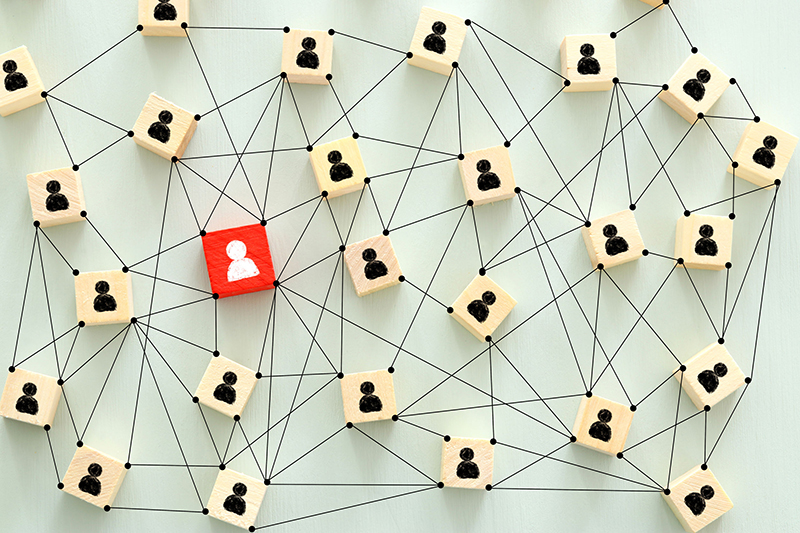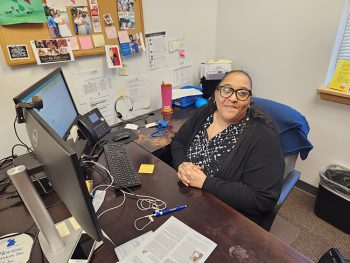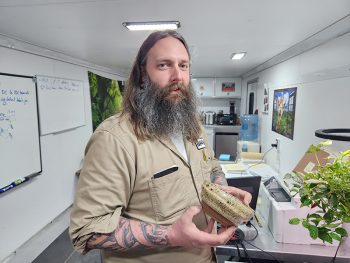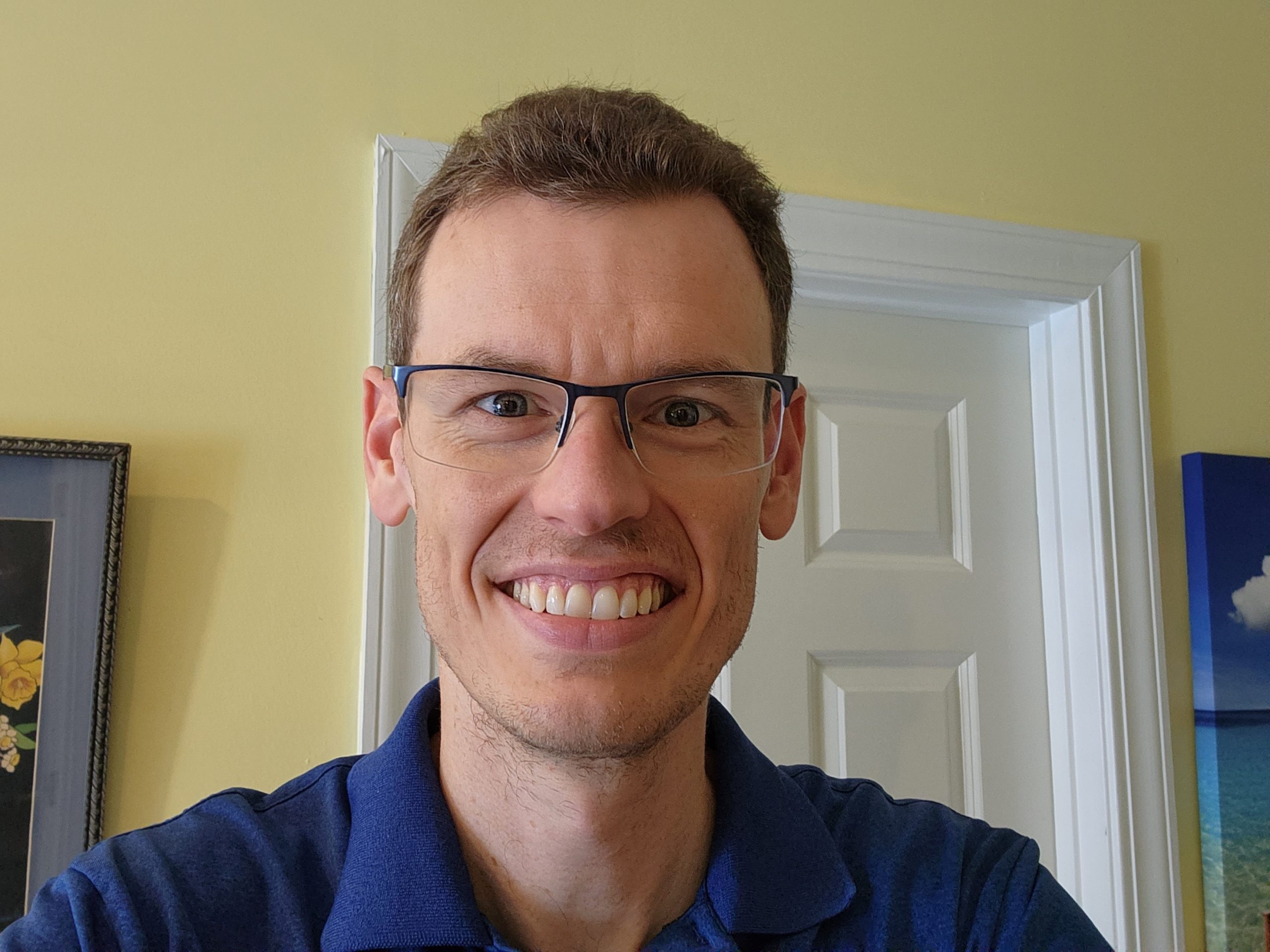Network helps those in need with utility assistance, other vital aid

People struggling with a job loss, major health problems or other financial hardships have an ally in their corner to help pay their utility bills.
They may not realize it, but the Energy Assistance Program run by OPPD is available to assist those who qualify – and it touches more customers than ever before.
The program is administered by the Dollar Energy Fund, a 501(c)(3) nonprofit with experience managing networks of community-based organizations across the country to administer utility assistance programs. Metropolitan Utilities District (M.U.D.) has a similar program of its own administered by the Dollar Energy Fund.
Having a network of community-based organizations is critical for OPPD, whose service territory covers the Omaha area and rural eastern Nebraska, from Burt County to the Kansas border. Rural residents don’t have to travel to Omaha for assistance. The program focuses on reaching into the community, at the level where services can help people most directly.
“It’s actually kind of revolutionary,” said Eddie Clark, product manager at OPPD. “It allows us to collaborate and band community-based organizations together throughout the whole service territory.”
A large network
The Energy Assistance Fund works with 56 different community-based organizations throughout OPPD’s service territory, adopting a “no wrong door” approach to assist customers. About 70% of Energy Assistance Program users live in the Omaha area, while the remaining 30% are in rural areas.
Through the system, people can apply to any number of local community-based organizations and qualify for assistance in less than a day. OPPD has also worked to ensure that its call center representatives are familiar with the program so they can enroll customers.
Clark said the program has grown in importance in recent years due to rising inflation and stagnant wages. Some of the biggest beneficiaries are fully employed Nebraskans who don’t qualify for other forms of aid, but still struggle. The Energy Assistance Program accepts households that make up to 200% of the U.S. federal poverty limit.
“From my perspective, the need is rising,” Clark said. “There’s no doubt we’re dealing with a post-pandemic era where people are really, really struggling to pay and make ends meet.”
Help with other services
Going to a community organization also lets customers access other “wrap around services,” such as food assistance or counseling. A person who can’t afford a monthly utility bill is likely also struggling to pay for food, or medicine, or day care costs.
“We wanted to make our program accessible to everyone in the community,” said Britton Gabel, manager of advocacy for OPPD. The network “gives our partners the ability to triage a customer’s entire situation and address individual needs.”
All the money raised for the Energy Assistance Fund is spent on those who need it. Last year, the program saw approximately 18% growth in total aid to recipients. In 2023, the program helped 933 households and distributed $340,099, up from 844 households and $295,830 the prior year.
At the same time, customers in OPPD’s service territory have seen a drop-off in federal pandemic assistance, despite lingering need among many residents. One in four OPPD customers is eligible for assistance.
“That’s why this funding is so important,” Gabel said. “This program fills that void in the community.”
‘Extremely important’
Gabel said customers may be wrestling with a job loss, or a death in the family, or a car breakdown, or any number of other problems.

They may have to tend to loved ones who can no longer care for themselves, and suddenly, they find themselves living paycheck to paycheck.
The Energy Assistance Program often makes a big difference for OPPD customers who seek help at Family Housing Advisory Services. The Omaha-based nonprofit works with tenants and landlords to keep people housed, offers financial education and tax services, and helps people navigate the challenges of buying a home, among other services.
In some cases, tenants can face eviction if they fail to maintain utility services in their dwelling. Family Housing Advisory Services works with clients to see if they qualify for assistance to stay current with their bills and encourages them to contact OPPD to try to work out a payment plan if they’ve fallen behind.
“The EAP is extremely important,” said Sharena Marrs, the group’s Tenant Services program director. “It allows us to intervene and see if we can help them. If a client is experiencing financial hardship, we can educate them on how to maintain their utility bills and help them find a sustainable path forward.”
Helping others
The network allows OPPD and M.U.D. to help customers who don’t realize assistance is available or that they even qualify. In partnership with the Dollar Energy Fund, OPPD has helped 12,367 households and distributed more than $4.41 million in assistance since 2020.
“It helps customers resolve issues and makes life less stressful,” Gabel said. “Then they can focus on what they need to do to get back on their feet.”
None of the assistance comes from ratepayers unless they volunteer to contribute on their monthly bill. Money comes from fundraising events, including Heat the Streets Run & Walk for Warmth, and donations. Every dollar donated goes to a customer. No program funds go to administrative costs.

OPPD employees have stepped up as well, donating money and time to help the cause. One employee, Micah Vogel, sold homemade pottery and made chili for a fundraising lunch at OPPD’s Elkhorn Center in mid-February.
Vogel said he jumped at the chance to contribute when a coworker, Andrew Korytowski, a field supervisor for substation construction, suggested that their department come together to champion the cause. Vogel’s coworkers donated ground beef, beans, cheese, corn chips and other ingredients for the chili. Vogel sold 30 tickets to the gathering, allowing each recipient to claim one of his bowls. The event raised more than $2,000.
“I just thought it would be cool if we could come together as a department to be champions of the program,” Vogel said. “It’s such a great cause, and it’s a really good way for OPPD to show we care about the community.”
Customers help through donations
Customer giving has increased as well through donations added to their utility bill, the Omaha Gives fundraising campaign and other events held year-round.
“Customers are stepping up to the plate and really seeing the need for utility assistance,” Gabel said. “They’re helping provide a path forward to keep people powered.”
Clark said the program truly aims to assist customers who need help rebuilding their lives.
“It sounds kind of cheesy, but we want to be a beacon of hope,” he said. “We have an opportunity to show people that, yeah, we get it, we understand what you’re going through. We know that life happens, and when it does, we want to be there as your partner.”

Grant Schulte joined OPPD as a content generalist in 2022. He is a former reporter for The Associated Press, where he covered the Nebraska Legislature, state politics and other news for a global audience. He is a graduate of the University of Iowa and a proud Hawkeye. In his free time he enjoys running, reading, spending time with his wife, and all things aviation.
View all posts by Grant Schulte >


